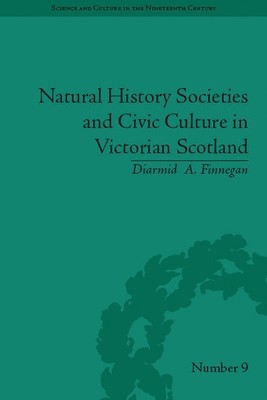
- We will send in 10–14 business days.
- Author: Diarmid A Finnegan
- Publisher: University of Pittsburgh Press
- ISBN-10: 0822966352
- ISBN-13: 9780822966357
- Format: 15.2 x 22.9 x 1.4 cm, softcover
- Language: English
- SAVE -10% with code: EXTRA
Natural History Societies and Civic Culture in Victorian Scotland (e-book) (used book) | bookbook.eu
Reviews
Description
Winner of the Frank Watson Prize in Scottish History, 2011 The relationship between science and civil society is essential to our understanding of cultural change during the Victorian era. Science was frequently packaged as an appropriate form of civic culture, inculcating virtues necessary for civic progress. In turn, civic culture was presented as an appropriate context for enabling and supporting scientific progress. Finnegan's study looks at the shifting nature of this process during the nineteenth century, using Scotland as the focus for his argument. Considerations of class, religion and gender are explored, illuminating changing social identities as public interest in science was allowed--even encouraged--beyond the environs of universities and elite metropolitan societies.EXTRA 10 % discount with code: EXTRA
The promotion ends in 19d.18:01:30
The discount code is valid when purchasing from 10 €. Discounts do not stack.
- Author: Diarmid A Finnegan
- Publisher: University of Pittsburgh Press
- ISBN-10: 0822966352
- ISBN-13: 9780822966357
- Format: 15.2 x 22.9 x 1.4 cm, softcover
- Language: English English


Reviews